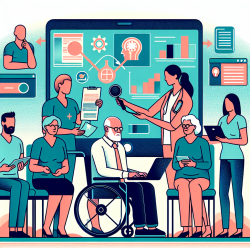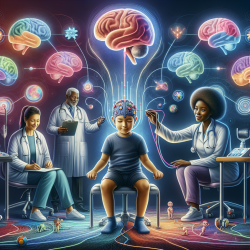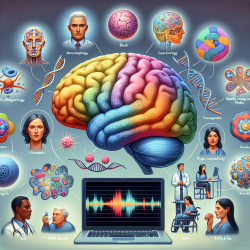Introduction
As a speech-language pathologist, understanding the multifaceted factors that influence a child's ability to return to normal activities after an injury or illness is crucial. The research article "Clinical and Psychological Factors Associated With Return to Work Among United States Diplomats Who Sustained a Work-Related Injury While on Assignment in Havana, Cuba" provides valuable insights that can be adapted to improve outcomes in pediatric speech-language therapy.
Research Overview
The study investigates the clinical and psychological factors affecting the return to work (RTW) among U.S. diplomats who experienced unexplained health issues, commonly referred to as "Havana Syndrome." Key findings indicate that vestibular, cognitive, hearing, sleep, and visual symptoms significantly impacted the ability to return to work, while psychiatric symptoms were less influential.
Implications for Speech-Language Pathology
Although the study focuses on adult diplomats, the findings can be extrapolated to pediatric speech-language pathology. Here are some practical applications:
- Holistic Assessment: Incorporate comprehensive assessments that evaluate vestibular, cognitive, and sensory processing in children. This approach can identify underlying issues that may hinder communication and learning.
- Multidisciplinary Collaboration: Collaborate with other healthcare professionals, such as occupational therapists and audiologists, to address complex cases. A team approach ensures that all aspects of a child's difficulties are addressed.
- Tailored Interventions: Develop individualized therapy plans that consider the child's specific symptoms and needs. For instance, if cognitive symptoms are prominent, focus on cognitive-linguistic therapy techniques.
- Data-Driven Decisions: Utilize data from assessments and progress monitoring to make informed decisions about therapy adjustments. Regularly updating therapy goals based on data ensures that interventions remain effective.
Encouraging Further Research
While the study provides valuable insights, further research is necessary to explore the specific impact of these factors on pediatric populations. Speech-language pathologists are encouraged to engage in research initiatives that investigate similar symptom constellations in children, particularly those with traumatic brain injuries or other neurological conditions.
Conclusion
The research on U.S. diplomats highlights the importance of addressing a range of symptoms that can impact functional outcomes. By integrating these findings into speech-language pathology practice, practitioners can enhance their ability to support children in overcoming communication challenges. To read the original research paper, please follow this link: Clinical and Psychological Factors Associated With Return to Work Among United States Diplomats Who Sustained a Work-Related Injury While on Assignment in Havana, Cuba.










